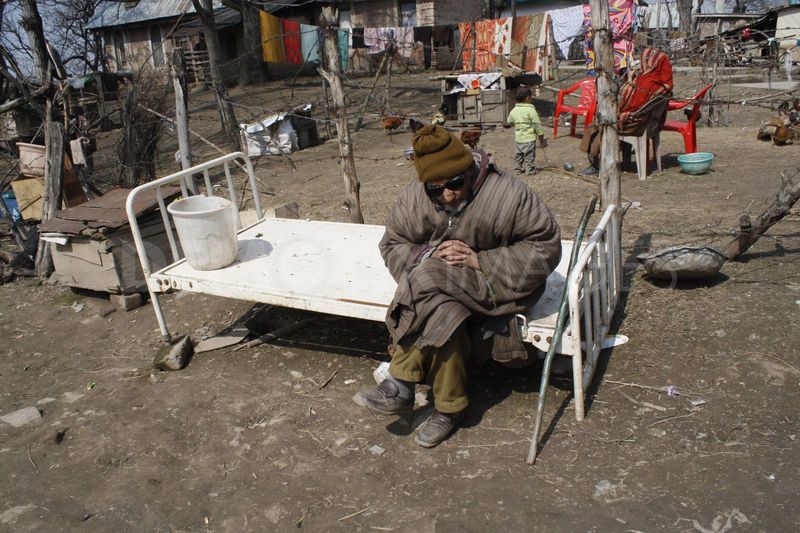The "Untouchables" of Kashmir
SRINAGAR: In the famous Hollywood movie Ben-Hur, Jesus Christ visits a Colony of people suffering from leprosy on the outskirts of the city. The patients of what was then, and continues today to be a dreaded disease, lived in the shabbiest conditions totally outcast from the society. It is a fact that Leprosy was once thought to be the most horrifying and deadly disease and those afflicted were treated as outcasts and lived in isolated colonies.
Leprosy is a chronic disease caused by the bacteria Mycobacterium leprae and Mycobacterium lepromatosis. It is also known as Hansen’s disease named after physician Gerhard Armauer Hansen. It is a disease of the peripheral nerves and mucosa of upper respiratory tract. Skin lesions are its primary external sign. Untreated Leprosy can cause permanent damage to the skin, nerves, limbs and eyes. Earlier it was believed that the disease causes body parts to fall off. However, that is not true. The secondary infections can result in tissue loss causing fingers and toes to become shortened and deformed as the cartilage is absorbed into the body.
Leprosy is now totally curable by multi-drug therapy and is not contagious as was thought earlier. According to medical findings in 95% cases there is no chance of another person getting it from one suffering from the disease. In most of the places in advanced countries the colonies for leprosy patients have been abolished. However, these still persist in some of the Eastern countries and Africa. India still has almost a thousand colonies spread all over. In Kashmir, the British set up the colony on the banks of Nageen Lake in a place which was known as Baharhaar. A Hospital for leprosy patients was housed in a Victorian style building. In the vicinity of the hospital a colony of single storey mud huts housed the lepers and their families.
Over a period of time, the colony as well as the hospital deteriorated. No one bothered about these outcasts from the society who has coming from places as far off as Kargil and Gurez. A couple of years back, one visited the colony in winter accompanied by some journalist friends. The poor men and women, with children,were living in miserable conditions. Most of the mud houses were leaking. The snow all around with the cold air flowing over the Nageen Lake had made the place like a mini Siberia. Few years back the government had initiated construction of quarters for the inhabitants of the colony. However, these were left incomplete due to some dispute with the contractor.
To highlight the misery of these people and the inaction of the government, a column titled, “The Leper Government” appeared in the newspaper. Also the reporters of the paper carried some stories about the plight of the patients. As the State Assembly was in session, it generated some response. A few days back, one again visited the colony. There has been appreciable progress. Most of the quarters have been completed and only ten to twelve people are still in mud houses. They too are expected to shift soon as the work is going on. It seems the government has overcome its own disease and has been moving to bring some relief to the patients. However, as usual, some of the works remain half-done. Completion would normally entail giving finishing touches to the area by removing debris and all the wastage etc. The basic facilities need to be improved and the whole area needs to be landscaped to make it presentable. First and foremost, the hospital building has to be renovated and kept as a heritage of the British times. The approach to the area needs to be improved. A large portion of the land has been encroached upon. This needs to be looked into. Fortunately, the Tourism Department has fenced a large part of the land and turned it into garden on the banks of Nageen Lake.
Incidentally, the approach to the area is through a maze of lanes and by lanes. It takes quite some time to reach the area. However, the easiest way is to cross in a motor boat from the Nageen Club. It hardly takes five minutes or so! The Chief Minister has been quite well known for her “healing touch” and it is time she gives the final “healing touch” to the patients of leprosy by visiting them. Even though such colonies have been abolished in most parts of the world, if we continue to have one, let it be a really presentable and a model colony.





